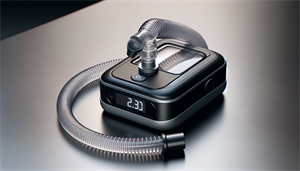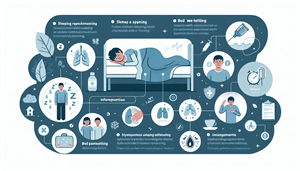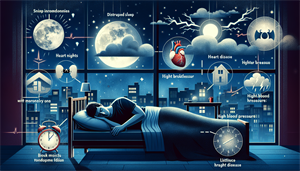
Introduction
Snoring and sleep apnea can be more than just a nighttime nuisance - they can have serious effects on health and quality of life. But what if there was a device that could help alleviate these problems in a less invasive and more comfortable way? Enter the anti snore micro cpap, a small, maskless device designed to combat snoring and sleep apnea. But how effective are these devices really, and are they a viable alternative to traditional solutions? In this blog post, we’ll dive into the fascinating world of anti snore micro cpaps and evaluate their potential as a snoring and sleep apnea solution.
Key Takeaways
Micro CPAP devices are an emerging technology designed to treat sleep apnea without a mask or hose, but their efficacy and safety have yet to be clinically proven and FDA approved. Traditional CPAP machines remain the preferred treatment for sleep apnea due to proven effectiveness, while micro CPAP devices face regulatory challenges and lack sufficient evidence of their air pressure capabilities and overall performance. Potential micro CPAP device users should consider the current lack of clinical evidence, safety concerns due to non-FDA approval, and alternative treatment options including lifestyle changes and other medical devices.
Unveiling the Micro CPAP: A Snoring Solution?
Micro CPAP devices offer a new perspective on the time-tested continuous positive airway pressure (CPAP) machines that treat sleep apnea. These compact, mask-free gadgets, known as micro CPAP machines, are engineered with the goal of being less cumbersome and quieter than traditional models, with the aim of minimizing snoring and enhancing sleep quality. Nonetheless, keep in mind that the development of micro CPAP technology is ongoing. Although these devices show potential, additional studies and clinical tests are needed to definitively confirm their efficacy in treating obstructive sleep apnea.
The Design and Appeal of Micro CPAP Devices
One of the main selling points of micro CPAP devices is their compact, unobtrusive design. Unlike traditional CPAP machines, which require a mask and are often connected to a machine via a hose, micro CPAPs: are lightweight are worn under the nose using nose buds operate through hundreds of micro-blowers that open and close to establish a continuous flow of air, ensuring an open airway during sleep. However, doubts exist about their capacity to sustain sufficient battery power for a full night’s sleep and the lack of humidity regulation, which could result in dry nasal passages.
Can Micro CPAP Devices Replace Traditional CPAP Machines?
The debate over whether micro CPAP devices can supersede traditional CPAP machines remains unresolved. Presently, due to various constraints, it appears impracticable for micro CPAPs to substitute traditional CPAP machines or other sleep apnea treatments. Moreover, micro CPAP technology is still nascent, with a working micro CPAP prototype still under development. Uncertainties about their effectiveness and safety linger until these devices undergo comprehensive testing and secure approval from authorities like the Food and Drug Administration (FDA).
The Science Behind Micro CPAP Effectiveness
The scientific basis for micro CPAP devices is still a work in progress. Although the idea of employing micro-blowers to create a steady air stream is hopeful, doubts persist regarding the air pressure capacity of these devices. Without adequate clinical trials, evaluating their performance relative to traditional CPAP machines becomes challenging. Also, significant features like pressure relief or pressure ramp options, ordinarily found in traditional CPAP machines, might be absent in early versions of micro CPAP devices.


